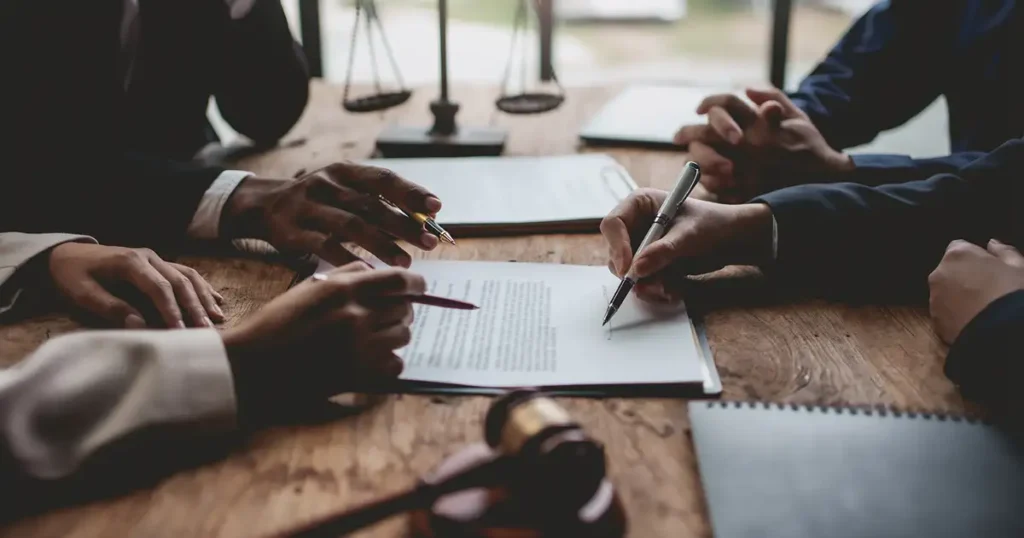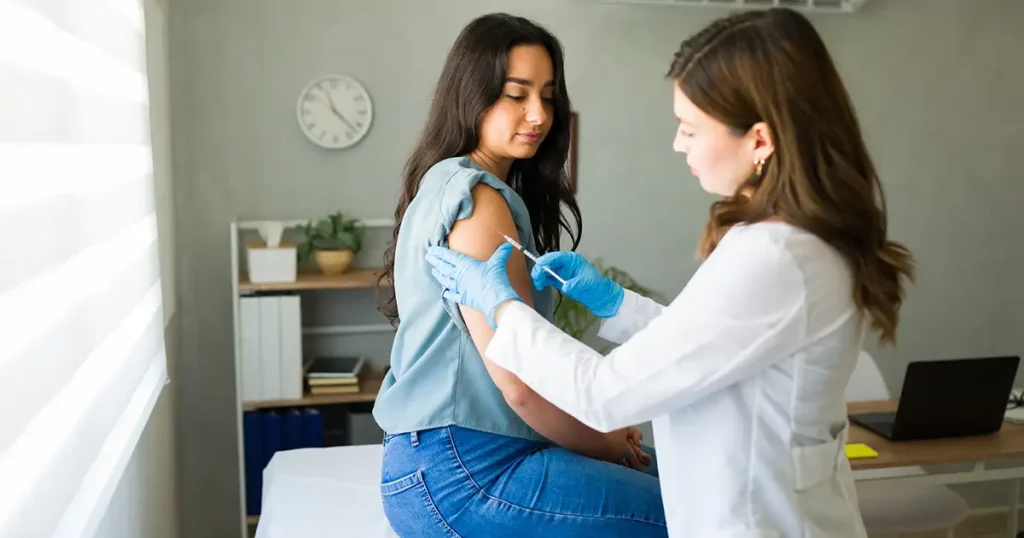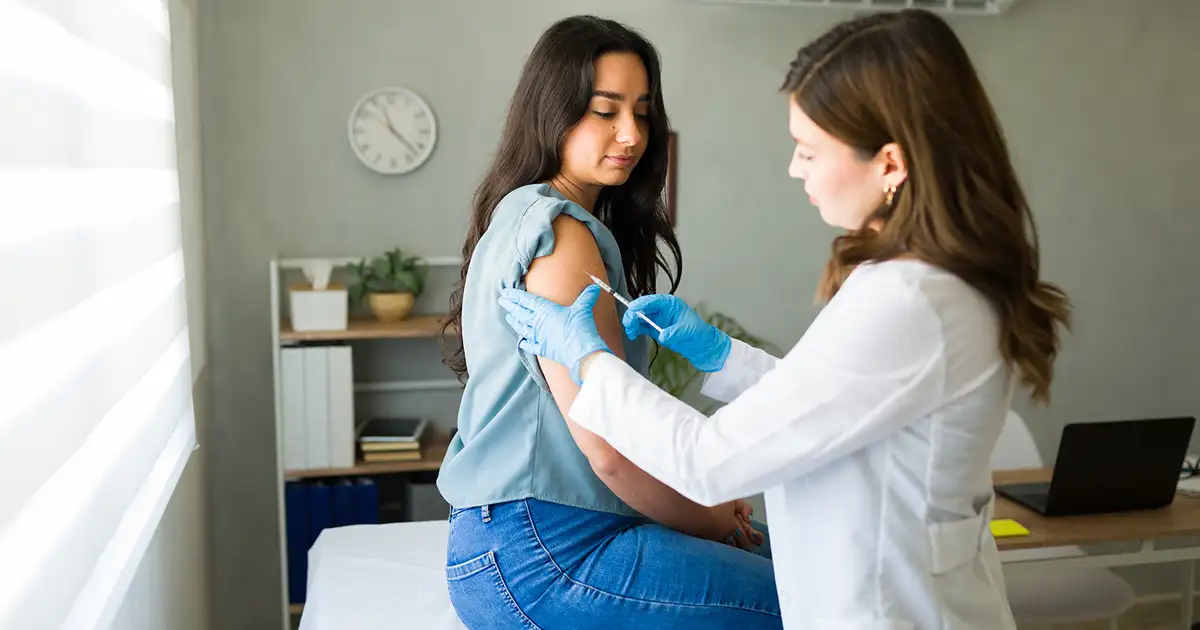When you receive your annual flu shot, the last thing you expect is a serious injury. The good news is that if you’ve been injured by a flu vaccine, you may be entitled to compensation through a specialized federal program designed specifically for vaccine injuries.
Unlike typical medical malpractice cases, flu shot injury compensation operates through a unique system that doesn’t require you to sue vaccine manufacturers or health care providers. This system, known as the National Vaccine Injury Compensation Program (VICP), has been providing financial compensation to vaccine injury victims for over three decades, paying out billions of dollars to thousands of injured individuals.
Understanding your legal options after a flu vaccine injury can be complex, which is why working with experienced vaccine injury attorneys is crucial. This guide will walk you through everything you need to know about pursuing compensation for flu shot injuries, from the types of injuries covered to the filing process and what you can expect in terms of compensation amounts.
Flu Shot Injury Compensation Through the VICP
What is the VICP?
The vaccine injury compensation program was established in 1986 through the National Childhood Vaccine Injury Act, created by Congress in response to a liability crisis that threatened the nation’s vaccine supply. Lawsuits over vaccine injuries, particularly those related to the DPT vaccine, led most vaccine manufacturers to exit the market or consider leaving, creating risks of vaccine shortages and declining vaccination rates.
To address this crisis while still protecting injured individuals, Congress created the VICP as a no-fault alternative to traditional litigation. The program began accepting claims in 1988 and operates with three core objectives: ensuring an adequate vaccine supply, stabilizing costs, and creating an efficient forum for compensating legitimate vaccine injuries.

The VICP is administered through a collaboration between three federal agencies: the U.S. Department of Health and Human Services conducts medical reviews and serves as the respondent, the Department of Justice provides defense counsel for health and human services, and the United States Court of Federal Claims oversees the adjudication process through special masters who handle vaccine injury claims.
How the Program Provides Compensation Without Lawsuits
One of the most significant advantages of the VICP is that it eliminates the need to file lawsuits against vaccine manufacturers or the providers who administered your flu shot. Instead, individuals file petitions directly with the court of federal claims, seeking compensation from a dedicated trust fund rather than from private parties.
Many vaccine injury cases are resolved through settlement even when formal causation findings aren’t reached, reflecting the program’s pragmatic approach to compensating plausible vaccine related injuries.
Claims are filed against the Secretary of health and human services in the United States Court of Federal Claims, where they’re defended by the Department of Justice’s Office of Vaccine Litigation. Attorneys who specialize in vaccine policy and related litigation, are often involved in these types of cases. This streamlined process allows for more efficient resolution of vaccine injury claims while ensuring that legitimate injuries receive appropriate compensation.
The Federal Trust Fund Supporting Compensation
All VICP awards and attorney fees are paid from the Vaccine Injury Compensation Trust Fund, which is financed through a federal excise tax on covered vaccines. For most vaccines, including seasonal flu vaccines, this tax is generally 75 cents per dose. The tax revenue accumulates in the trust fund, from which all compensation payments and legal costs are made. VICP covers injuries that have been linked to vaccines, including Guillain-Barre Syndrome, Chronic Inflammatory Demyelinating Polyneuropathy, Transverse Myelitis, Brachial Neuritis, and Complex Regional Pain Syndrome, among other vaccine injuries.
This funding mechanism ensures that vaccine injury compensation doesn’t come directly from vaccine manufacturers or healthcare providers, which was a key policy goal of the 1986 Act. The trust fund backing means that awards are collectible and not dependent on a defendant’s financial solvency, providing greater security for injured individuals seeking compensation.
Working with a Vaccine Injury Attorney
Importance of Specialized Legal Experience
Vaccine injury law is a highly specialized area of federal practice that operates under unique rules and procedures. Cases are heard before special masters in the court of federal claims, using medical-legal standards that differ significantly from typical personal injury or medical malpractice litigation. The vaccine injury table creates presumptions for certain injuries occurring within specific timeframes, while off-table claims require proving medical causation through expert testimony.

Experienced vaccine injury attorneys understand how to navigate the complex procedural requirements, marshal medical records and expert opinions, and present evidence that fits either table criteria or satisfies causation standards for off-table claims. They’re familiar with the discovery process, expert retention requirements, settlement negotiations, and the separate entitlement and damages phases that characterize VICP proceedings.
The specialized nature of this practice means that not all personal injury lawyers are equipped to handle vaccine injury cases effectively. The right lawyer will have specific experience with VICP procedures, relationships with qualified medical experts, and a track record of successful outcomes in vaccine injury cases.
What to Expect During the Legal Process
The VICP process begins with filing a petition in the court of federal claims, accompanied by required medical records and vaccination documentation. Your case will be assigned to a special master who manages proceedings and may decide entitlement and damages phases separately. The Department of Justice represents health and human services in responding to your petition and working with HHS medical reviewers.
Cases may resolve through several pathways: negotiated settlement, a ruling on entitlement based on table presumption or off-table causation, a separate damages determination, or dismissal if criteria aren’t met. The process was designed to be less time-consuming than traditional tort litigation and often resolves through settlement or decision without requiring a jury trial.
Timelines can vary considerably based on injury complexity, completeness of medical records, need for expert reports, and whether the case proceeds to hearing. Your attorney will help manage expectations about timing while working to gather the necessary evidence and expert testimony to support your claim.
What Questions Should I ask a Flu Shot Injury Attorney?
When choosing a vaccine injury attorney, it’s important to ask specific questions about their experience and approach to VICP cases. Key questions include: How many vaccine injury compensation cases has the firm handled, and what were the outcomes? Does the attorney have specific familiarity with table injuries like SIRVA and Guillain Barre Syndrome, as well as strategies for off-table causation?
You should also inquire about the firm’s relationships with qualified medical experts, their typical timelines and communication practices, and their approach to preserving evidence and meeting filing deadlines.
Law firms that practice nationally before the court of federal claims and can demonstrate experience with flu shot injury cases, particularly SIRVA and GBS claims, may be better positioned to navigate the common challenges in these cases and maximize your potential recovery. For more information or assistance, contact us.
Two Common Flu Shot Injuries Eligible for Compensation
The VICP recognizes that even when vaccines are properly manufactured, individuals may experience severe injury or adverse reactions that warrant compensation. For seasonal influenza vaccines, two categories of injuries represent common bases for successful compensation claims: serious reactions like Guillain-Barre Syndrome, and shoulder injuries.
Shoulder Injury Related to Vaccine Administration (SIRVA)
SIRVA describes a constellation of shoulder injuries caused by vaccine administration into the shoulder joint area rather than the deltoid muscle. This typically occurs due to improper injection technique, incorrect injection site selection, or needle placement that damages structures around the shoulder joint.

In VICP practice, SIRVA encompasses several conditions including adhesive capsulitis (frozen shoulder), subacromial bursitis, rotator cuff tendinopathy and tears, and various forms of tendonitis. These injuries result from inflammation and damage to the structures surrounding the shoulder joint when the vaccine is inadvertently injected into the wrong anatomical location.
The vaccine injury table provides a presumption for SIRVA when symptoms begin within a specified timeframe after vaccine administration. This table listing streamlines the compensation process for individuals who develop shoulder injuries that meet the table criteria, eliminating the need to prove causation through expert testimony.
Guillain-Barré Syndrome (GBS)
Guillain-Barré Syndrome is a rare autoimmune polyradiculoneuropathy in which the body’s immune system mistakenly attacks peripheral nerves. While GBS commonly follows infections, in some instances it has been associated with vaccination, including seasonal flu vaccines. The condition involves inflammation and damage to the myelin sheath that surrounds nerve fibers, disrupting normal nerve signal transmission. Symptoms of Guillain-Barre Syndrome from flu vaccine injury, can begin several days after receiving a flu shot.
The immune response that triggers GBS can result from molecular mimicry, where the immune system mistakes nerve tissue for foreign antigens. This autoimmune attack can affect motor nerves (causing weakness), sensory nerves (causing numbness and tingling), and autonomic nerves (affecting breathing, heart rate, and other vital functions).

In the context of vaccine injury claims, establishing GBS requires demonstrating that the onset occurred within an appropriate timeframe following flu vaccination and that other potential triggers have been considered and ruled out. Expert neurological testimony is often essential to establish the connection between vaccination and GBS development.
Compensation Amounts and What’s Covered
Maximum Compensation Under the VICP
The VICP provides compensation across several categories, with specific statutory limits for certain types of damages. Pain and suffering damages are capped at $250,000, while death cases provide a statutory death benefit of $250,000, in addition to pain and suffering. These caps provide predictability for both petitioners and the program administrators while ensuring that substantial compensation is available for serious injuries.
Medical expenses, both past and future, are not subject to the pain and suffering cap and can include substantial lifetime care needs for severe neurologic injuries or other serious complications. Lost wages and diminished earning capacity are also compensable without specific caps, allowing for significant awards in cases involving permanent disability or long-term impairment.
For individuals who suffer severe injury from flu vaccination, the combination of uncapped medical expenses and lost wage compensation, along with pain and suffering damages, can result in substantial total awards. The trust fund backing ensures that these awards are paid regardless of the financial status of any private parties.
Trust Fund Payment Security
Because all awards are paid from the vaccine injury compensation trust fund rather than by private parties, petitioners have greater assurance that their compensation will actually be collected. Unlike traditional litigation where defendants might lack sufficient insurance or assets to pay large judgments, the federal trust fund provides a reliable source of payment for VICP awards.
The trust fund is continuously replenished through the federal excise tax on covered vaccines, providing ongoing funding for the program. This structure was specifically designed to ensure that vaccine injury victims receive their compensation while protecting vaccine manufacturers and providers from direct liability that could threaten vaccine supply.
This payment security is particularly important for cases involving severe injuries that require lifetime medical care or result in permanent disability. Knowing that compensation will be available from a stable federal fund provides greater peace of mind for injured individuals and their families.
What Should I Do if I Suspect a Flu Shot Injury?
Immediate Medical Evaluation
If you experience persistent or worsening symptoms following flu vaccination, seek prompt medical evaluation to rule out serious complications and create contemporaneous records linking symptom onset to vaccination timing. For potential GBS cases, progressive weakness or breathing difficulties require emergency medical attention.
Document your symptoms carefully, including when they began relative to vaccination, how they’ve progressed, and how they affect your daily activities. Keep copies of all medical records, test results, and treatment documentation, as these will be essential for any potential legal claim.
Follow through with all recommended diagnostic testing and treatments, as this medical documentation will be crucial for establishing both the extent of your injury and its connection to vaccination. Prompt and appropriate medical care also ensures the best possible outcomes for your health.
What Documents Should I have for a Flu Shot Injury Case?
Gather and preserve all vaccination-related documentation immediately, including immunization records, consent forms, vaccine information statements, and any clinic or pharmacy billing records. Document the specific vaccine product, lot number, date of administration, and location where you received the vaccination. Take photographs of visible symptoms when appropriate, and ask family members or colleagues to document any functional limitations they’ve observed.
Keep records of all medical expenses, lost work time, and other costs related to your injury. This documentation will be important for calculating damages if you pursue a vaccine injury claim through the VICP.
Contact a Qualified Vaccine Injury Attorney
It is crucial to contact an experienced vaccine injury attorney promptly for case evaluation. Individuals with a history of Guillain-Barre Syndrome should consult a physician before receiving a flu shot.
Early legal consultation allows attorneys to help preserve evidence, ensure that medical documentation is complete, and determine whether your case fits table criteria or requires an off-table causation strategy. Experienced attorneys can also coordinate with appropriate medical experts early in the process.
How does a Flu Shot Injury Consultation Work?
During your initial consultation, a qualified vaccine injury attorney will review your vaccination records, medical documentation, and symptom timeline to assess the strength of your potential claim. They’ll explain whether your injury might qualify under vaccine injury table criteria or would require off-table proof of causation.
The attorney should explain the VICP process, including typical timelines, what to expect during proceedings, and how attorney fees are handled under the program. They should also discuss the types of compensation available and provide realistic expectations about potential outcomes based on your specific circumstances.
If you suspect you’ve been injured by a flu vaccine, don’t wait to seek both medical attention and legal guidance. Contact our experienced vaccine injury attorneys today for your free consultation to learn about your rights and options under the federal vaccine injury compensation program.
